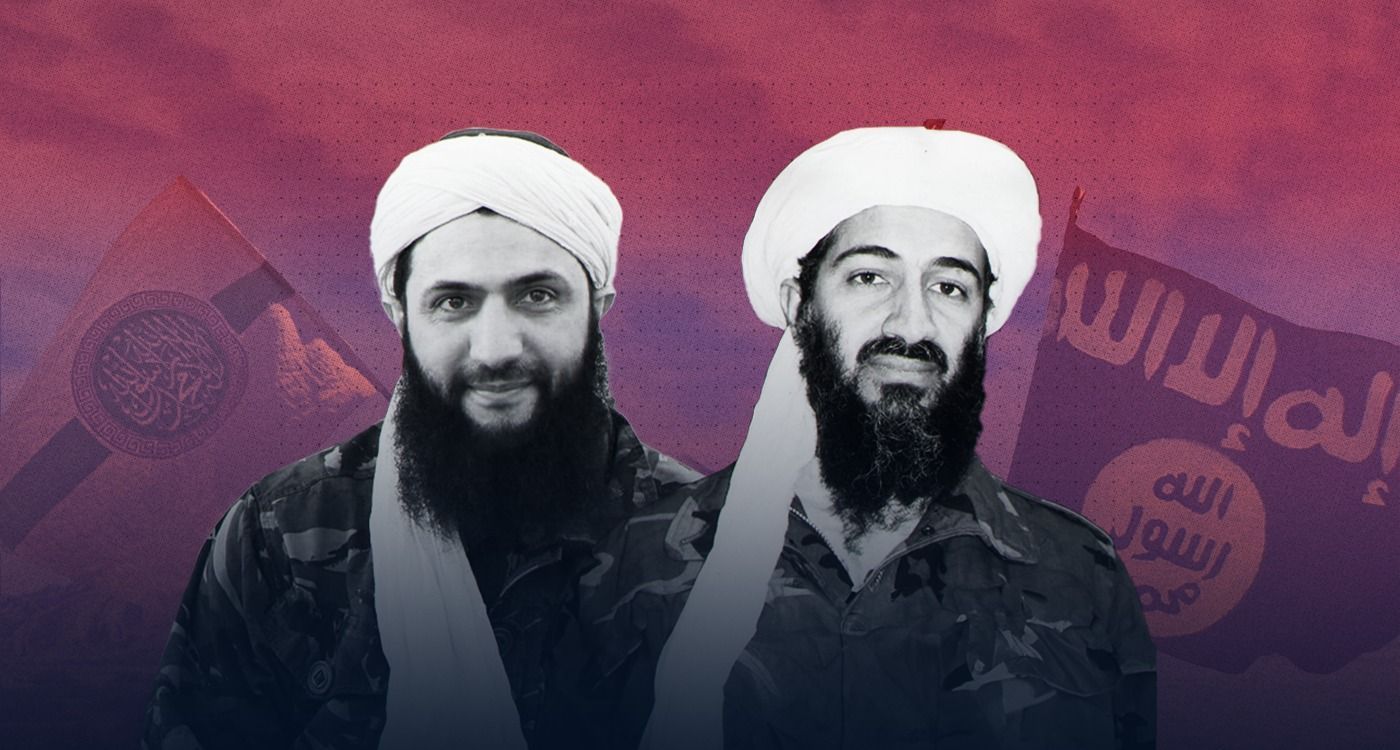- Home
- Highlights
- Sharaa–Bin Laden: Reversed Paths!

©This is Beirut
Let it be crystal clear: no Syrian, no Lebanese, no Palestinian… regrets the fall of the Khmer Rouge of the Levant. The Assad dynasty, guilty of crimes against humanity and large-scale massacres against its own people, as well as those of “brotherly” countries, has finally fallen after fourteen years of civil war.
The problem is that today, Syria is neither rebuilt nor reconciled, nor even properly governed and pacified. The recent clashes in the country’s West coast followed by abuses against civilians served as a bloody reminder that Syria is far – very far – from even approaching the bare minimum of democracy. Instead, a new generation of Islamists, far less caricatured than those of al-Qaeda but just as dogmatic, has taken control of power.
In the streets of Idlib, Afrin, Damascus, Homs and Aleppo, beards are more trimmed, speeches more polite, smiles more diplomatic. But behind the appearances lies the same ideological matrix: that of a conquering political Islam that has merely changed its packaging to better appeal to Western chancelleries. Their message is simple: “We are not Daesh. We are not al-Qaeda. We are the moderates you were looking for.”
At the heart of this transformation, one name crystallizes the strategy: Ahmad al-Sharaa. A former member of the jihadist nebula who passed through Syrian prisons, training camps and battlefields, Sharaa managed to reinvent himself and abandoned his war name: al-Jolani.
While Bin Laden went from being an ally of the Americans to public enemy number one, Sharaa is – more cleverly – taking the reverse path. Today, he is received in Doha, mentioned in diplomatic cables as a “pragmatic interlocutor,” and even discussed in the halls of some American think tanks as a man “one can work with.” The name of the group that brought him to power is opportunely Hay’at Tahrir al-Sham. Al-Sham, not Syria. Words matter. The choice of this name implies a transnational, regional geographical dimension encompassing Syria, Lebanon, Jordan, Israel and the Palestinian territories. A way of saying: we will not stop at borders created by mandates and colonizers we do not recognize.
Can we really work with movements that were once labeled as terrorist? Are they sincere in their transformation, or are extreme ideas merely veiled by a layer of political makeup? Can we believe in the moderation of a movement that is beginning to question women’s rights and religious freedom? Can we, for geopolitical opportunism, condone what we so loudly condemned yesterday?
The answer may lie in the silence of the Syrians themselves; in those exhausted villages where the state has vanished, replaced by local Islamist authorities funded by Turkey or private Gulf money; in those refugee camps that drag on endlessly, their populations growing in Lebanon and elsewhere, where people no longer dare to imagine a return; in this fragmented Syria, handed over to foreign powers playing chess with human pawns.
It is not democracy that has replaced dictatorship. It is another form of authoritarianism, dressed in modernity, but just as stifling. An authoritarianism that now knows how to seduce Washington, persuade Brussels, and negotiate with Ankara. A new-look authoritarianism, well-groomed, but carrying the same seeds of exclusion and violence.
Is Syria still a country, or simply a wasteland colonized by competing ideologies, under the cynical gaze of global powers? If the question remains open, one thing is certain: Syria’s future cannot be built with either the executioners of yesterday or the extremists of today – regardless of the costume they wear.
Winston Churchill once said:
“Some change their movement to defend their convictions. Others change their convictions to defend their movement.”
Read more




Comments